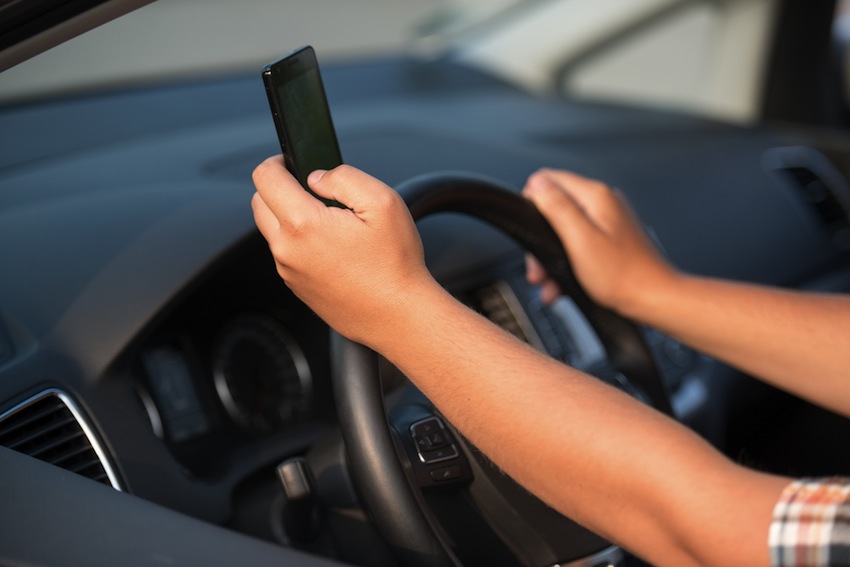Massachusetts Police Are Cracking Down on Distracted Driving

Texting photo via Shutterstock.com
The same day that Massachusetts State Police announced they received grant money to thwart texting while driving, a statewide survey showed that people are generally nonchalant about using their smartphones while behind the wheel.
According to Plymouth Rock Assurance, an automobile insurance carrier that serves both Massachusetts and Connecticut, a questionnaire of 500 drivers, aimed at measuring their awareness of and response to the Massachusetts’ Safe Driving Law, found that nearly 40 percent of drivers regularly send text messages while driving.
The survey also showed that one-quarter of the Massachusetts drivers who answered the questionnaire said the laws won’t change how they operate a vehicle—and that they’re likely to continue texting behind the wheel. “Female drivers were more likely to have texted while driving than male drivers, and drivers between the ages of 17 and 44 were more than twice as likely to have texted behind the wheel as drivers over the age of 45,” according to the results of the survey.
The results also showed that while texting and checking GPS devices were the main problems, 10 percent of those asked admitted that they updated a Twitter status behind the wheel and eight percent checked Facebook. Six percent checked sports scores.
Surprisingly, however, 96 percent of respondents said they would not text and drive with young children in the car, and 94 percent of the total sample are unlikely to text and drive with any other passenger in the car, so much of the activity is happening when operators are on their own, the study claims. “It’s a compelling statistic to see that nearly all drivers refrain from texting and driving when their children are riding along with them,” said Chris Olie, CEO of Plymouth Rock Assurance. “Those drivers should be making the same safe driving decisions when they’re riding alone, to protect themselves as well as pedestrians and passengers in other vehicles.”
The results of the survey are exactly the type of practices that State Police say they will be looking for. On Tuesday, officials announced that they received a $275,000 grant from the National Highway Traffic Safety Administration to funds to increase enforcement of the Massachusetts Safe Driving Law. The law, which went into effect in 2010, bans drivers from sending, typing, or reading electronic messages using handheld devices while operating a motor vehicle.
According to police, sting operations will be setup along state highways in 12 communities during the next few months. Each sting will be completed in two- to four-week intervals starting June 10. The pilot project, called “Text With One Hand, Ticket In The Other” will focus on monitoring highways and looking for distracted drivers by using “high visibility enforcement,” police said.
The distracted driving problem, which claims the lives of more than 3,000 people each year nationally, is something Harvard professor Jay Winsten has been trying to end as well. Winsten, the Frank Stanton Director of the School of Public Health’s Center for Health Communication at Harvard, is working with Hollywood writers and producers to get them to insert subliminal messages about the risks of distracted driving into popular television shows.
Winsten says because people relate with certain characters, they are likely to absorb the message. “You need a simple message and the ability to send that message over and over again,” said Winsten in a recent interview.


